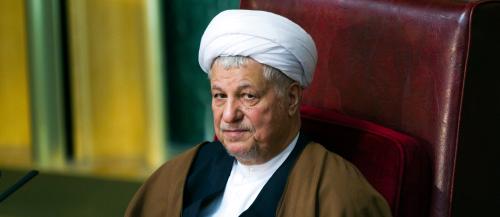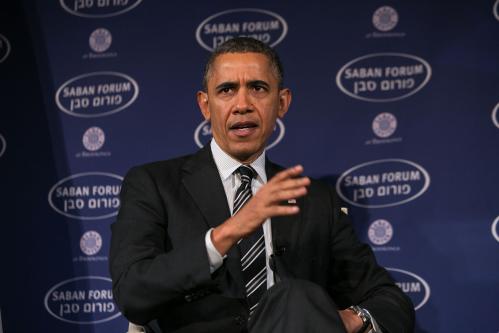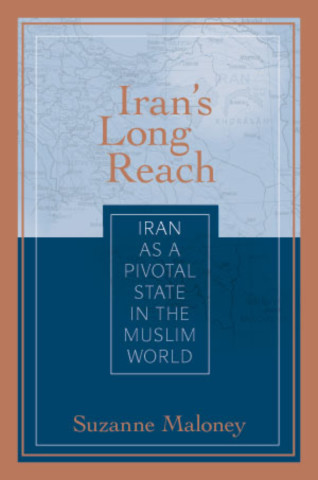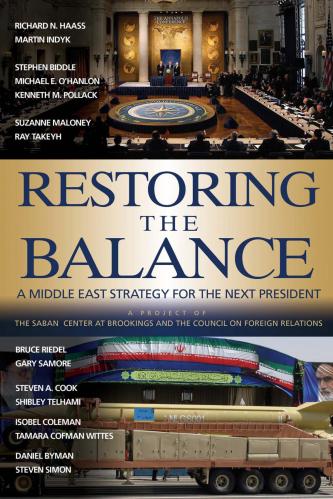We’ve got mail! Michael Miner of Harvard University was kind enough to send his thoughts on Iran @ Saban’s commentary on the vetting process for the upcoming Iranian presidential election. Interestingly, Miner proffered an alternative explanation for the disqualification of former president Ali Akbar Hashemi Rafsanjani. Miner made this argument originally here, with an analysis of Rafsanjani’s rationale for getting into the race in the first place. Among other possibilities, Miner theorizes that the Rafsanjani bid might have been a deliberate ploy intended to balance Mashaei’s inevitable disqualification and provide a diversion from any uproar over Mashaei’s exclusion.
While I’m skeptical about the Mashaei aspect here for reasons that I’ll get into in a longer post on Mashaei next week, I think Miner raises an important uncertainty about Rafsanjani’s motivations that, at this early stage at least, seems impossible to resolve with any degree of confidence. Most of the reporting has accepted the narrative put forward by the former president’s camp on both his late-game decision to jump into the 2013 race, and his shock at his disqualification. However, as Iran analyst extraordinaire Farideh Farhi observed recently, politics in Iran resembles “a three-dimensional chess game,” and on that basis it’s reasonable to wonder, at least, whether Rafsanjani’s registration might have been a gambit of some kind by a politician renowned for his cunning.
Was Rafsanjani’s registration a wholly straightforward bid at contesting the presidential election? Or was it part of a more complicated political maneuver with an ulterior motive? I’ve read or heard several such interpretations, in addition to the one suggested by Miner above: that Rafsanjani anticipated his disqualification, and registered precisely with the intent of exposing the regime’s duplicity; or that, with similar logic, Rafsanjani put himself forward with the intention of using his eventual rejection as a means of mobilizing much more vigorous popular support around his long-time ally and fellow pragmatist, Hassan Rouhani.
These kinds of convoluted explanations appeal to my own cynical mind; the theatrics associated with Rafsanjani’s eleventh-hour decision to run sounded suspiciously embroidered given the protracted decision-making period that preceded it. For that reason alone, it seems to me that we have yet to fully comprehend the calculations that shaped the way that Hashemi played this hand. Of course, it’s all too easy to over-interpret when it comes to Iran. Sometimes a cigar is just a cigar, even in the Islamic Republic, and Hashemi Rafsanjani may just be another ambitious, aging politician who miscalculated his prospects in a system that had turned against him. The early reaction in the Iranian press would seem to support this explanation. Still, this is one of the many unknowns of this election season in Iran. Weigh in with your views on the Rafsanjani saga at [email protected].
Iran @ Saban may slow down a bit over what is a long weekend in Washington, but we’ll be keeping tabs on the candidates in Iran as electioneering there begins to move into full swing. (The official campaign is a mere eight days in June, but the fun has already begun.) We’ll be back in full swing ourselves next week; watch for Iran @ Saban to go graphic, at least in the sense of incorporating photos. And stay tuned for more substance— including an equally keenly-argued response to my colleague Michael Doran‘s much-discussed piece on U.S. diplomacy toward Iran on Syria, more contributions on Iran’s role in the region, and of course much more analysis of the election dynamics. As always, send your comments, questions, analytical contributions to [email protected].
The Brookings Institution is committed to quality, independence, and impact.
We are supported by a diverse array of funders. In line with our values and policies, each Brookings publication represents the sole views of its author(s).











Commentary
Iran @ Saban Friday Wrap-Up
May 24, 2013